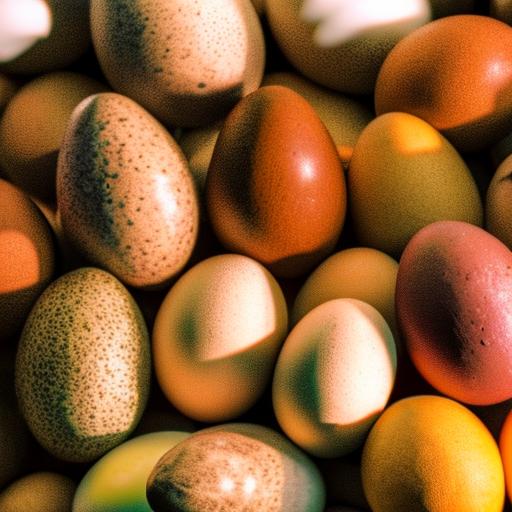Egg-laying chicken breeds are widely favored by both small-scale and commercial poultry farmers due to their high egg production capabilities. These breeds have been selectively bred to maximize egg output, making them valuable assets in poultry operations of all sizes. Whether establishing a backyard flock for personal egg consumption or developing a commercial egg production enterprise, selecting the appropriate egg-laying chicken breed is crucial for achieving desired outcomes.
Several factors should be considered when choosing egg-laying chicken breeds, including egg production rates, temperament, and adaptability to various climatic conditions. Some breeds perform better in free-range environments, while others are more suited to confined spaces. A thorough understanding of the characteristics and requirements of different egg-laying chicken breeds is essential for making an informed decision that aligns with specific goals, resources, and environmental conditions.
Key Takeaways
- Egg laying chicken breeds are specifically bred for their ability to produce a high number of eggs, making them popular choices for backyard chicken keepers and commercial egg production.
- Characteristics of top egg laying chicken breeds include high egg production, good temperament, and adaptability to various climates and living conditions.
- Popular egg laying chicken breeds include the White Leghorn, Rhode Island Red, and Plymouth Rock, known for their consistent egg production and hardiness.
- Best egg laying chicken breeds for beginners include the Australorp, Orpington, and Sussex, known for their friendly disposition and ease of care.
- Tips for raising egg laying chicken breeds include providing a balanced diet, proper housing and nesting boxes, regular health checks, and ensuring access to clean water and ample space for exercise.
Characteristics of Top Egg Laying Chicken Breeds
Here is the rewritten text with 3-4 Egg Laying Chicken Breeds: Exceptional Egg Production
These breeds are renowned for their remarkable ability to produce an impressive number of eggs, often exceeding 250-300 eggs per year. Their smaller size and high feed efficiency make them a cost-effective choice for egg production.
Characteristics of Top Egg Laying Breeds
In addition to their exceptional egg production, many of these breeds are known for their friendly and docile temperaments, making them an excellent choice for backyard flocks and family-friendly environments.
Popular Egg Laying Breeds
Some of the most popular egg laying chicken breeds include the White Leghorn, Rhode Island Red, and Plymouth Rock. These breeds are prized for their consistent egg production, adaptability to various climates, and overall hardiness.
Popular Egg Laying Chicken Breeds

The White Leghorn is perhaps the most well-known egg laying chicken breed, prized for its prolific egg production and efficient feed conversion. This breed typically lays large white eggs and is known for its active and independent nature. The Rhode Island Red is another popular choice, valued for its dual-purpose capabilities as both an excellent egg layer and a quality meat bird.
This breed is known for its hardiness and adaptability to different climates, making it a versatile option for poultry farmers. The Plymouth Rock, also known as the Barred Rock, is a favorite among backyard flock owners for its friendly disposition and consistent egg production. This breed is known for its brown eggs and is prized for its ability to thrive in various environments.
Other popular egg laying chicken breeds include the Sussex, Orpington, and Australorp, each with its own unique characteristics and qualities that make them valuable additions to any poultry operation.
Best Egg Laying Chicken Breeds for Beginners
For beginners looking to start a backyard flock or small-scale egg production operation, there are several egg laying chicken breeds that are well-suited for novice poultry farmers. The Rhode Island Red is an excellent choice for beginners due to its hardy nature, friendly temperament, and consistent egg production. This breed is relatively low-maintenance and adapts well to different management systems, making it an ideal option for those new to raising chickens.
The Plymouth Rock is another top choice for beginners, as it is known for its docile nature and ease of care. This breed is adaptable to various climates and is a reliable egg layer, making it a valuable addition to any beginner’s flock. Additionally, the Sussex and Orpington breeds are well-suited for novice poultry farmers, as they are known for their calm and gentle dispositions, making them easy to handle and manage.
Tips for Raising Egg Laying Chicken Breeds
When raising egg laying chicken breeds, there are several important factors to consider to ensure the health and productivity of your flock. Providing a balanced diet that includes high-quality layer feed, fresh water, and access to grit and oyster shells is essential for supporting optimal egg production. Additionally, ensuring proper housing that protects the flock from predators and provides adequate ventilation and space is crucial for their well-being.
Regular health checks and preventative measures such as vaccinations and parasite control are important for maintaining the overall health of your egg laying chicken breeds. Monitoring their behavior and egg production can also provide valuable insights into their well-being and help identify any potential issues early on. Finally, providing enrichment activities such as dust baths, perches, and access to outdoor space can help keep your flock happy and healthy.
Health and Nutrition for Egg Laying Chicken Breeds

Nutrition for Healthy Egg Production
A balanced diet that includes high-quality layer feed with the appropriate levels of protein, vitamins, and minerals is essential for supporting healthy egg production. Additionally, providing access to fresh water at all times is essential for keeping your flock hydrated and supporting their overall health.
Regular Health Checks and Preventative Measures
Regular health checks by a qualified veterinarian can help identify any potential health issues early on and ensure that your flock receives the necessary care and treatment. Preventative measures such as vaccinations and parasite control can help protect your flock from common diseases and parasites that can impact their health and productivity.
A Clean and Well-Maintained Living Environment
Additionally, providing a clean and well-maintained living environment with proper ventilation and space can help prevent respiratory issues and other health concerns.
Conclusion and Final Thoughts on Egg Laying Chicken Breeds
In conclusion, selecting the right egg laying chicken breed is essential for successful egg production, whether you are starting a small backyard flock or a commercial poultry operation. Understanding the characteristics of different breeds, their adaptability to different environments, and their overall health and nutritional needs is crucial for making an informed decision that aligns with your specific goals and resources. Whether you choose popular breeds such as the White Leghorn, Rhode Island Red, or Plymouth Rock, or opt for other versatile options like the Sussex or Orpington, there are plenty of egg laying chicken breeds to choose from that can meet your specific needs.
By providing proper care, nutrition, and housing, you can ensure the health and productivity of your flock while enjoying a steady supply of fresh eggs. With the right knowledge and resources, raising egg laying chicken breeds can be a rewarding experience for both novice and experienced poultry farmers alike.
If you’re interested in learning more about how to care for goslings, check out this helpful article on how to care for goslings. It’s important to understand the specific needs of different poultry breeds, whether it’s chickens or geese, in order to provide them with the best care possible. Understanding the unique requirements of each breed can help ensure the health and well-being of your flock.
FAQs
What are some popular egg laying chicken breeds?
Some popular egg laying chicken breeds include the Rhode Island Red, Leghorn, Sussex, Plymouth Rock, and Orpington.
How many eggs can egg laying chicken breeds produce?
On average, egg laying chicken breeds can produce between 250-300 eggs per year, depending on the breed and individual bird.
What are the characteristics of egg laying chicken breeds?
Egg laying chicken breeds are typically known for their high egg production, good temperament, and hardiness. They come in a variety of colors and sizes.
What is the best environment for egg laying chicken breeds?
Egg laying chicken breeds thrive in a clean and spacious coop with access to fresh water, proper nutrition, and protection from predators. They also require adequate space for nesting and roosting.
What is the average lifespan of egg laying chicken breeds?
The average lifespan of egg laying chicken breeds is around 5-7 years, although some can live longer with proper care and attention.
Meet Walter, the feathered-friend fanatic of Florida! Nestled in the sunshine state, Walter struts through life with his feathered companions, clucking his way to happiness. With a coop that’s fancier than a five-star hotel, he’s the Don Juan of the chicken world. When he’s not teaching his hens to do the cha-cha, you’ll find him in a heated debate with his prized rooster, Sir Clucks-a-Lot. Walter’s poultry passion is no yolk; he’s the sunny-side-up guy you never knew you needed in your flock of friends!







